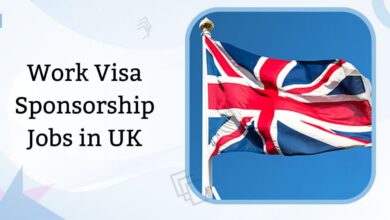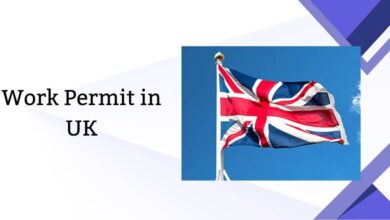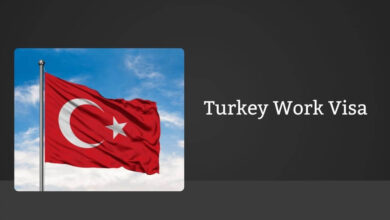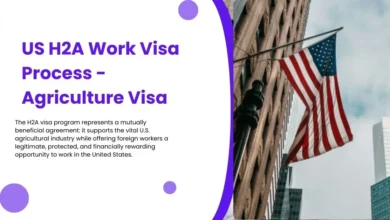Algeria Work Visa Process 2026 – A Complete Guide
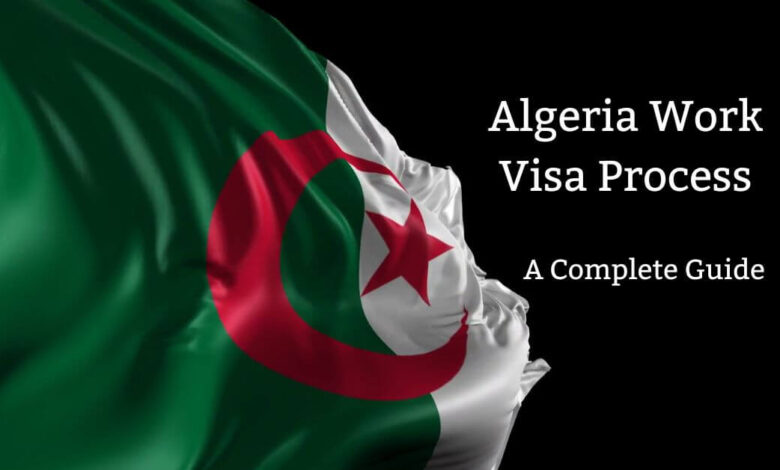
The country of Algeria is in North Africa. It shares borders with Mauritania, Tunisia, Libya, Niger, Mali, the Western Sahara, and Morocco to the west. If you want to apply for a work visa in Algeria, we will go over all the steps you need to take. How to apply for a visa, the different types of work visas and permits, and what you need to do to get a visa.
There are only two kinds of work cards. 1) A work visa for Algeria. 2) A temporary work visa for Algerians. With these work cards, you can get paid to work for an Algerian company. Foreign workers will also need to apply for a work permit before they can apply for a work visa. Algeria’s most well-known businesses are oil and gas, finance, education, and foreign aid. Here are more specifics about how to get a work visa for Algeria.
Types of Algeria Work Visa Process:
There are types of Algerian work visas:
- Algeria Work Visa
- Algeria Temporary Work Visa
1) Algeria Work Visa:
People from other countries who have been permitted to work in Algeria for a long time can get this work visa. Getting permission to work means getting a work pass.
2) Algeria Temporary Work Visa:
People from other countries who have been permitted to work in Algeria can get this visa, but only for 90 days.
Benefits of Algeria Work Visa:
- Legal Employment Status: A work visa guarantees that you are permitted to engage in lawful employment in Algeria, safeguarding you from legal complications associated with unauthorized employment.
- Job Opportunities: Algeria’s economy is expanding, providing employment opportunities in a variety of sectors, including oil and gas, construction, engineering, education, and healthcare. A work visa enables you to access these employment markets.
- Economic Stability: Algeria’s employment opportunities can offer a consistent source of income, which is especially advantageous for individuals from countries with limited job opportunities or reduced wages.
- Professional Development: Acquiring international work experience in Algeria can improve your resume by equipping you with valuable skills and knowledge that may be advantageous for future career opportunities.
- Cultural Experience: Algeria provides a distinctive cultural experience for those who reside and operate there. Immerse yourself in Algerian culture, acquire proficiency in Arabic or French, and develop a more profound comprehension of the nation’s history, customs, and way of life.
- Networking Opportunities: Algerian employment provides the opportunity to establish professional relationships with both domestic and international counterparts. This networking can be advantageous for future job prospects and professional development.
- Long-term Residency Possibility: Based on the duration of your employment and the terms of your work visa, you may be eligible to file for longer-term residency, which can offer greater stability and benefits.
- Benefits and Protections: Health insurance, housing provisions, and transportation are among the numerous benefits and protections that Algerian employers provide. Furthermore, Algerian labor laws guarantee that individuals possessing legitimate work visas are safeguarded.
- Development Contribution: Employment in Algeria can be personally rewarding, particularly when one is employed in sectors such as infrastructure, healthcare, or education, as it allows one to contribute to the country’s economic and social growth.
- Tax Advantages: Algeria has tax treaties with certain countries, which may mitigate your tax liability and prevent double taxation.
- Family Opportunities: Your family may be able to join you in Algeria, which could offer them new experiences and opportunities, contingent upon the form of visa you have.
- Cost of Living: The cost of living in Algeria may be lower than in your home country, which may enable you to save more money or enjoy a higher standard of living.
- Travel and Adventure: Algeria is a nation that boasts a plethora of tourist attractions, diverse landscapes, and a rich history. While employed there, you have the opportunity to explore the city, deserts, mountains, and coastline during your leisure time.
- Language Proficiency: Algeria offers an exceptional opportunity to enhance your language proficiency, particularly in Arabic and French, which are both extensively spoken in the country.
- Corporate Experience: If you are employed by a multinational corporation, working in Algeria can provide you with a deeper understanding of international markets and provide you with insights into global business operations.
How to Get a Algeria Work Visa?
Your employer in Algeria will ask for a Work Permit (Autorisation Provisoire de Travail – APT) that has been approved by the Ministry of Labor, Employment, and Professional Integration in Algeria.
Required Documents:
- Form to Apply for a Visa.
- A passport, valid for at least six months.
- Copy of passport.
- Two (2) recent pictures of yourself.
- The same identity papers.
- A certificate of travel insurance and repatriation help
- A temporary work permit is needed to get a work visa.
- Authorization for Temporary Work (APTT) to get a work visa for a short time.
- A contract for work.
Duration of Visa:
It will be possible to work with this visa for 90 days. The work visa can be used for either one (1) or two (2) years.
Check Also: Sweden Work Visa – Work in Sweden
Visa Fees:
For up-to-date information on how to apply and how much it costs, contact the Algerian office or consulate in your country.
Where, and How to Apply for Algeria Work Visa Process?
- Depending on where you live, the process for applying for an Algerian work visa might be different. Each country has its own rules about how to apply for a visa.
- Please click on this link to find out how to get an Algerian work visa for your country. This list keeps track of all of Algeria’s foreign and consular missions around the world.
- First, choose the area where you live, then the country. The name of the person you’re looking for and the address of the Algerian embassy in your country will be shown.
How Can I Get a Work Visa for Algeria?
First, you’ll need a job offer from Algeria. Then, your boss will have to get a work pass approved. After that, you can apply for an Algeria Work Visa.
How Much Does a Visa Cost in Algeria?
There is no set fee to follow the steps. The fee to apply for Algeria is different for each country.
How to Apply for Algeria Work Visa?
Please go to the webpage of the Algerian Ministry of Foreign Affairs. Pick your area and the name of the country. The information that is relevant to your country will be shown.
Conclusion:
Get information on how to get a work visa in Algeria, whether it’s for a short time or a long-term position. Learn the steps you need to take, from getting a work permit accepted by the Ministry of Labor to applying for the type of visa you want.
Check out the things that are needed, like the application form, passport, ID, trip insurance, and more. Find out about the application process, visa fees, and how long the visa is valid for based on your home country. Visit the webpage of the Algerian Ministry of Foreign Affairs for more information.
Frequently Asked Questions:
How do I get a work permit for Algeria?
In Algeria, your boss needs to get a Work Permit (Autorisation Provisoire de Travail – APT) from the Ministry of Labor, Employment, and Professional Integration.
What are the types of work visas in Algeria?
There are two main types of work visas in Algeria: the regular work visa and the temporary work visa.
Can I get a job in Algeria?
Algeria allows foreign nationals to work; you must have both a residence permit and a work permit.
